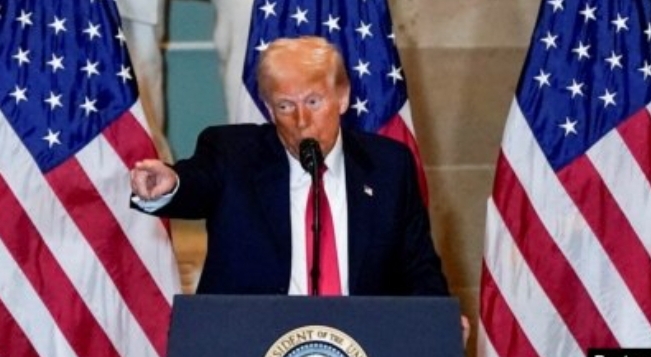US sanctions on ICC prosecutor hinder court’s work, isolate staff, and threaten its future.
U.S. Sanctions on ICC Prosecutor Undermine Tribunal’s Functioning


The chief prosecutor of the International Criminal Court (ICC) has been cut off from his email access, and his bank accounts have been frozen. Meanwhile, staff members based in The Hague who are American nationals have been warned that traveling to the United States could lead to their arrest. Several nongovernmental organizations have ceased cooperation with the ICC, and leaders of one such organization have refused to respond to communications from court officials.
These are just a few of the significant challenges facing ICC personnel since U.S. President Donald Trump imposed sanctions in February against the court’s chief prosecutor, Karim Khan. This information comes from interviews with current and former ICC officials, international legal experts, and human rights advocates. According to Liz Evenson, the international justice director at Human Rights Watch, these sanctions will effectively “prevent victims from gaining access to justice.”
The sanctions were imposed following a November ruling by an ICC judicial panel that issued arrest warrants for Israeli Prime Minister Benjamin Netanyahu and his former defense minister, Yoav Gallant. The court’s judges concluded there was reasonable cause to believe that the two individuals might have committed war crimes by restricting humanitarian aid and deliberately targeting civilians during Israel’s conflict in Gaza.
Staff and allies of the ICC say the sanctions have severely hindered the court’s ability to perform even routine functions, let alone pursue justice for victims of war crimes or genocide. A spokesperson representing the ICC and Karim Khan declined to provide a comment. However, in February, ICC President Judge Tomoko Akane condemned the sanctions as “serious attacks against the Court’s States Parties, the rule of law based international order and millions of victims.”
The sanctions prohibit Khan and other non-U.S. employees—who make up approximately 900 staff members—from entering the United States, which notably is not a member state of the ICC. The order also threatens fines and imprisonment for any individual, company, or institution that provides “financial, material, or technological support” to Khan.
These restrictions are obstructing work across multiple investigations, not limited to the inquiry involving Israeli officials. The ICC had been actively investigating atrocities in Sudan, having issued arrest warrants for former Sudanese President Omar al-Bashir on charges including genocide. However, this investigation has effectively stalled even as reports of fresh atrocities continue to surface in Sudan. This was confirmed by an attorney representing ICC prosecutor Eric Iverson, who is challenging the sanctions in U.S. courts. Iverson has filed a federal lawsuit against the Trump administration seeking relief from the imposed sanctions.
Allison Miller, Iverson’s legal representative, stated that he is unable to perform what she termed “basic lawyer functions,” reflecting the impact of the sanctions on his work.
American ICC staff, including Iverson, have been warned by the court’s legal advisors that returning to the United States could expose them to arrest, especially if they travel to visit family, according to ICC sources. Due to these concerns, six senior ICC officials have resigned from the court.
A significant factor contributing to the ICC’s operational paralysis is its heavy dependence on contractors and nongovernmental organizations. Many of these entities have cut back or entirely ceased their collaboration with the ICC because they fear being targeted by U.S. enforcement agencies, according to current and former ICC employees.
For instance, Microsoft reportedly deactivated Khan’s official email account, prompting the prosecutor to switch to Proton Mail, a secure Swiss-based email service. Additionally, his bank accounts in the United Kingdom have been frozen, staffers said. Microsoft did not respond to a request for comment on the matter.
One NGO that plays a vital role in assisting the ICC with evidence collection and witness coordination has moved funds out of U.S.-based bank accounts, fearing seizure by the Trump administration, according to personnel affiliated with the ICC.
Senior leaders of two other U.S.-based human rights organizations told the Associated Press that their groups have halted collaboration with the ICC altogether. A senior staff member from one of these organizations revealed that employees have stopped responding to court officials’ emails out of fear of triggering retaliatory actions by the Trump administration.
The combined impact of these developments has led ICC staffers to openly question whether the court can withstand the pressures of the Trump administration. ICC officials who spoke anonymously, citing fear of retaliation, expressed doubts about the court’s ability to continue functioning effectively through the next four years of U.S. political leadership.
One official even questioned whether the ICC would survive the current U.S. political climate, raising concerns about the future of the institution itself.

 বাংলা
বাংলা  Spanish
Spanish  Arabic
Arabic  French
French  Chinese
Chinese 
